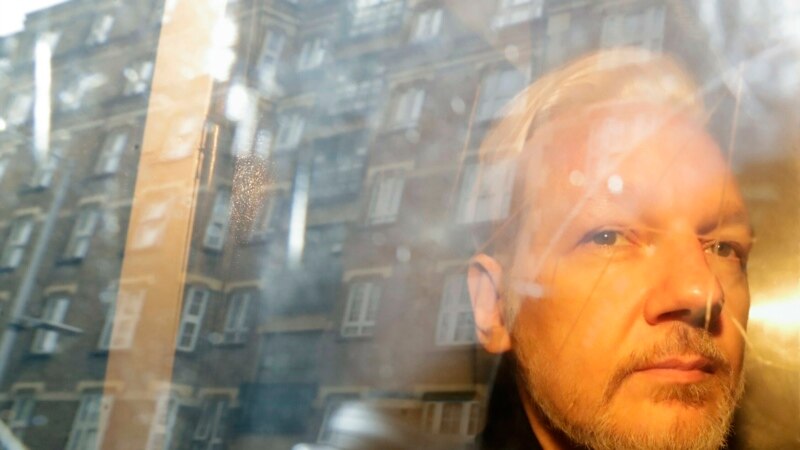The British government on Friday ordered the extradition of WikiLeaks founder Julian Assange to the United States to face spying charges — a milestone, but not the end of the decade-long legal saga.
WikiLeaks said it would challenge the order, and has 14 days to lodge an appeal.
Home Secretary Priti Patel signed the order authorizing Assange’s extradition to the U.S., where he faces charges over WikiLeaks’ publication of a huge trove of classified documents.
The decision was referred to Patel after a British court ruled in April that Assange could be sent to the U.S., where he faces trial on 17 charges of espionage and one charge of computer misuse. American prosecutors say Assange unlawfully helped U.S. Army intelligence analyst Chelsea Manning steal classified diplomatic cables and military files that WikiLeaks later published, putting lives at risk.
The Home Office said in a statement that “the U.K. courts have not found that it would be oppressive, unjust or an abuse of process to extradite Mr. Assange,” and so the government had to approve the extradition.
“Nor have they found that extradition would be incompatible with his human rights, including his right to a fair trial and to freedom of expression, and that whilst in the U.S. he will be treated appropriately, including in relation to his health,” it said.
Supporters and lawyers for Assange, 50, argue that he was acting as a journalist and is entitled to First Amendment protections of freedom of speech for publishing documents that exposed U.S. military wrongdoing in Iraq and Afghanistan. They argue that his case is politically motivated and that he cannot get a fair trial in the U.S.
“Today is not the end of the fight. It is only the beginning of a new legal battle,” said Assange’s wife, Stella Assange. She said the U.K. decision marked “a dark day for press freedom and for British democracy.”
“Julian did nothing wrong,” she said. “He has committed no crime and is not a criminal. He is a journalist and a publisher, and he is being punished for doing his job.”
A British judge approved the extradition in April, leaving the final decision to the government. The ruling came after a legal battle that went all the way to the U.K. Supreme Court.
A British district court judge had initially rejected the extradition request on the grounds that Assange was likely to kill himself if held under harsh U.S. prison conditions. U.S. authorities later provided assurances that the WikiLeaks founder wouldn’t face the severe treatment that his lawyers said would put his physical and mental health at risk. Those assurances led Britain’s High Court and Supreme Court to overturn the lower court’s ruling.
Journalism organizations and human rights groups had called on Britain to refuse the extradition request. Assange’s lawyers say he could face up to 175 years in jail if he is convicted in the U.S., though American authorities have said any sentence is likely to be much lower than that.
Amnesty International Secretary General Agnes Callamard said Friday that extraditing Assange “would put him at great risk and sends a chilling message to journalists the world over.”
“If the extradition proceeds, Amnesty International is extremely concerned that Assange faces a high risk of prolonged solitary confinement, which would violate the prohibition on torture or other ill treatment,” she said. “Diplomatic assurances provided by the US that Assange will not be kept in solitary confinement cannot be taken on face value given previous history.”
Assange has been held at Britain’s high-security Belmarsh Prison in London since 2019, when he was arrested for skipping bail during a separate legal battle. Before that, he spent seven years inside the Ecuadorian Embassy in London to avoid extradition to Sweden to face allegations of rape and sexual assault.
Sweden dropped the sex crimes investigations in November 2019 because so much time had elapsed.
In March Assange and his partner Stella Moris, who have two sons together, married in a prison ceremony.

